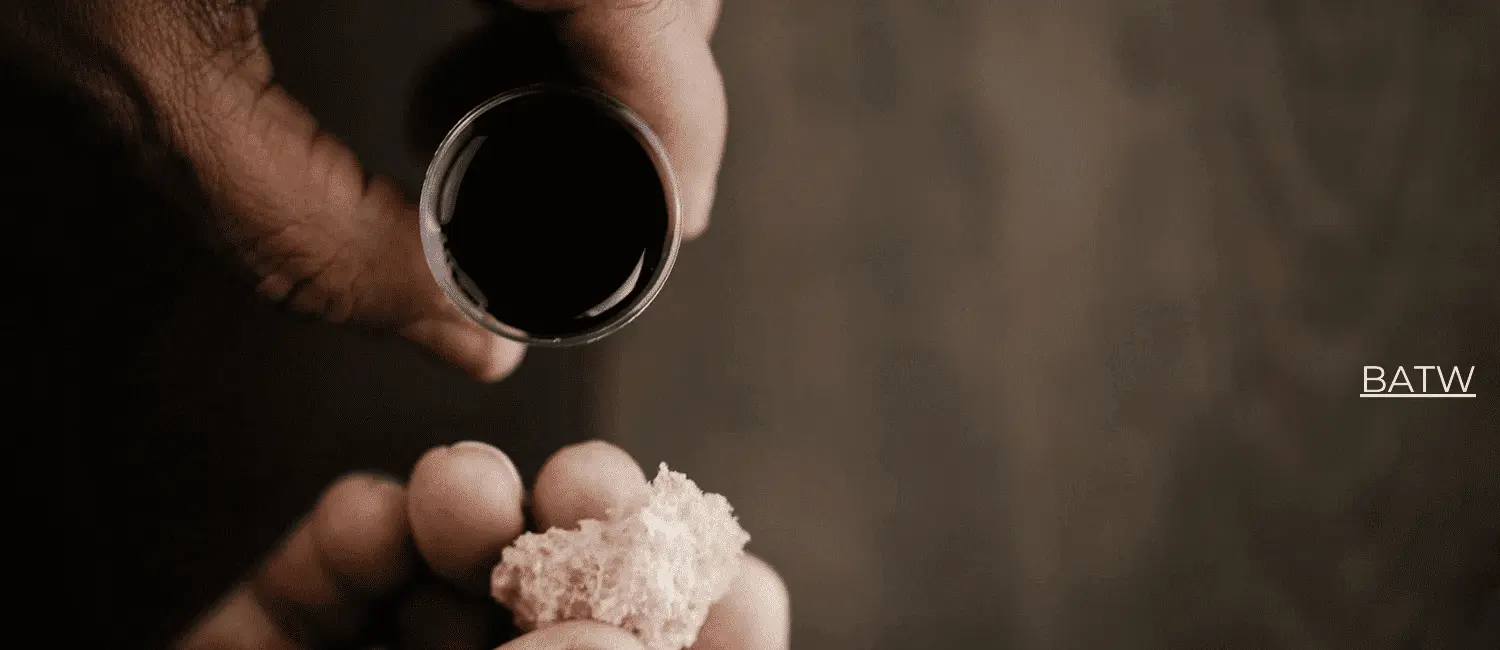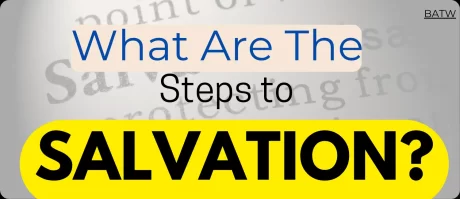What Does The Bible Say About The Lord’s Supper?
Did Jesus make a prayer before communion? Or did he do it after? Is this important and why?
The act of praying before receiving Holy Communion is a common practice among many Believers. But did Jesus teach this during His time on Earth?
The Bible does not provide specific instructions on whether or not one should pray before Communion. However, it does offer guidance on the importance of prayer and the significance of the Lord’s Supper.
In the New Testament, Jesus spoke about the Lord’s Supper. He conducted the first communion. During it, he explains its significance to his disciples (Matthew 26:26-30, Mark 14:22-26, Luke 22:14-20).
Who Conducted The First Lord’s Supper?
Jesus did! He took bread and wine and gave thanks to God. Then he distributed them to His disciples, instructing them to do this in remembrance of Him.
As children of God who live in the sacrifice of Christ and under the shadow of the cross, we follow the same today.
The act of thanksgiving and remembrance is central to the very act of observing Communion.
In Communion, prayer before partaking can serve as preparation of one’s heart and mind. We could see it as an expression of gratitude for Christ’s sacrifice, and a seeking for spiritual nourishment and Communion with God.
Let us look at the basics of Communion and understand how it works.

What Is The Holy Communion?
The Holy Communion, also known as the Lord’s Supper or the Eucharist, is a religious ritual crucial to the Church as a whole and Believers in particular.
It is quite important to the body of Christ. It commemorates the Last Supper of Jesus Christ with His disciples just before His crucifixion. This is literally a non-negotiable.
Let us take a look at the first Holy Communion in Matthew 26:26-29,
While they were eating, Jesus took bread, and when he had given thanks, he broke it and gave it to his disciples, saying, “Take and eat; this is my body.” Then he took a cup, and when he had given thanks, he gave it to them, saying, “Drink from it, all of you. This is my blood of the covenant, which is poured out for many for the forgiveness of sins. I tell you, I will not drink from this fruit of the vine from now on until that day when I drink it new with you in my Father’s kingdom.”
What Does The Holy Communion Symbolize?
The Holy Communion is a religious ritual for remembering the sacrifice of Christ. The bread represents his body. However, the wine symbolizes his blood.
The act of us partaking in the consecrated bread and wine symbolizes us enjoying the benefits of the sacrifice of Christ.
What Are The Benefits of Taking The Holy Communion?
This, Jesus encouraged his first disciples and us to “do in remembrance of me.” Luke 22:19.
Every time we partake of the Holy Communion, we are enjoying the forgiveness of sins that the blood of Jesus Christ purchased for us.
“For this is my blood of the new testament, which is shed for many for the remission of sins.”
Matthew 26:28
Additionally, when we partake in the communion we are reminding ourselves of Christ and the ultimate sacrifice that he made!
Prayer Before And After Holy Communion?
Praying both before and after Holy Communion is a common practice among many Christians.
While the Bible does not provide any explicit instructions on praying before and after Communion, prayer is how we communicate with God, telling Him about the current condition of our hearts.
We know that the Holy Spirit is our Helper and Guide. He will convict us of any impurities in our hearts before we partake of the Holy Communion.
Partaking of the Holy Communion is a sacred act. Christians should not do so with sins in their hearts.
If you partake of the Communion with unrepentant sin, it is folly and sinful. The Apostle Paul explains. In 1 Corinthians 11:27-31, he says,
How Do We Determine What Is Unworthy?
“So then, whoever eats the bread or drinks the cup of the Lord in an unworthy manner will be guilty of sinning against the body and blood of the Lord. Everyone ought to examine themselves before they eat of the bread and drink from the cup. For those who eat and drink without discerning the body of Christ eat and drink judgment on themselves. That is why many among you are weak and sick, and a number of you have fallen asleep. But if we were more discerning with regard to ourselves, we would not come under such judgment.”
1 Corinthians 11:27-31
What Is The Short Prayer Before The Eucharist?
While he does not specifically mention praying before Communion in this passage, he emphasizes the need for self-examination and a proper understanding of the significance of Christ’s body and blood. If we don’t examine our hearts before partaking in the Holy Communion, we’re sinning against the Lord. That is why we pray before seeking His will, guidance, and judgment. Praying before Communion allows us to reflect on our relationship with God and seek His guidance and forgiveness. Let us look at it in detail.
Before Holy Communion: Praying before receiving the Holy Communion can serve several purposes:
- Preparation: Prayer before Communion allows believers to prepare their hearts and minds to receive the body and blood of Christ.
- Gratitude: Prayer is also a way to express gratitude for Christ’s sacrifice and the gift of salvation. Through prayer, we acknowledge the significance of the bread and wine as symbols of Christ’s body and blood, which were given for the forgiveness of sins.
- Examination: Prayer before Communion ought to involve self-examination, where we can reflect on our thoughts, attitudes, and deeds, seeking God’s forgiveness and guidance in areas of need.
After Holy Communion: Here are a few reasons we pray after Communion:
- Thanksgiving: Just as Jesus gave thanks during the Last Supper, believers offer prayers of thanksgiving after partaking in Communion. It is a way to express gratitude and thanksgiving for His great sacrifice. We humbly bow before the cross and thank the Lord for His eternal mercies over our lives.
- Reflection: Prayer after Communion allows believers to reflect on the quality of their walk with Christ, the contents of their hearts, the personal encounter with Christ, and the takeaway from that particular experience with Christ.
Who Should Participate In It?
Here are a few pointers that support and justify those who can participate in the Holy Communion:
- Believers in Jesus Christ: Holy Communion is primarily intended for those who have professed faith in Jesus Christ as their Lord and Savior. Only those who have received salvation can participate in the sacred act of the Holy Communion. You can partake of it only if you have accepted Jesus’ atoning sacrifice and entered into a personal relationship with Him.
- Repentant and Reconciled: It is mandatory for one to be in a repentant state, acknowledging their sins and seeking reconciliation with God and others. If your heart isn’t right and there is a heavy conviction of the Holy Spirit, it is good not to partake in Communion. Examining one’s heart, confessing any known sins, and seeking forgiveness are vital.
- A Representation of Unity and Fellowship: Holy Communion often symbolizes unity and fellowship among believers. When we participate in Communion, we’re coming together as the body of Christ.
Who In the Bible Prayed Before Communion?
Here are a few instances where people prayed before partaking in the Holy Communion in the Bible:
- Jesus, During the Last Supper: As recorded in the Gospels (Matthew 26:26-29, Mark 14:22-25, Luke 22:14-20), Jesus took bread, gave thanks, and distributed it to His disciples. While the exact content of His prayer is not mentioned, it is implied that He offered thanks to God before sharing the bread and wine.
- Apostle Paul: In the early Christian church, the apostle Paul provided instructions and guidance on the Lord’s Supper in 1 Corinthians 11:23-26. Although Paul does not mention specific prayers before Communion, he emphasizes the importance of self-examination and approaching the Lord’s Supper with reverence and discernment. Prayers of preparation, gratitude, and repentance were likely part of the believers’ practice before participating in the Lord’s Supper.
- Jesus, After His Resurrection: In Luke 24:30-31, after the resurrection, Jesus appeared to two disciples on the road to Emmaus. When Jesus sat at the table with them, He took bread, blessed it, broke it, and gave it to them. While the specific words of His prayer are not mentioned, it is implied that Jesus offered a prayer of blessing or thanksgiving before breaking the bread.
While the specific act of praying before Communion, as practiced in many Christian traditions today, may not be explicitly mentioned in the Bible, these examples help us look at the significance of prayer, thanksgiving, and reverence in the context of the Lord’s Supper.
Does Failure To Pray Before Holy Communion Affect It?
Failing to pray before receiving Communion does not directly affect the act of Communion. The entire purpose of praying before Holy Communion is to prepare one’s heart and mind, express gratitude for Christ’s sacrifice, seek forgiveness for unforgiven sins, and seek spiritual Communion with God. It is better to pray before you partake in such a holy and sacred ritual.
We pray because we come to the throne of God in utter and absolute humility. We know that we’d be nothing without the sacrifice of Christ. Salvation comes from Him and Him alone. Nothing we can do (in our own strength) to pay for His sacrifice. That is why we pray before we eat of His flesh and drink of His blood. As such, the absence of a pre-communion prayer does not invalidate or diminish the power of God. It is something that should spring from the heart of the believer.
Conclusion
We’ve seen and understood the necessity of praying before and after partaking in Holy Communion. At the end of the day, your relationship with the Lord is all that matters. He will convict you of any hidden sins, and repenting of them is mandatory. We must always remember that Communion is Holy. We should have clean hands and pure hearts before participating in it.


